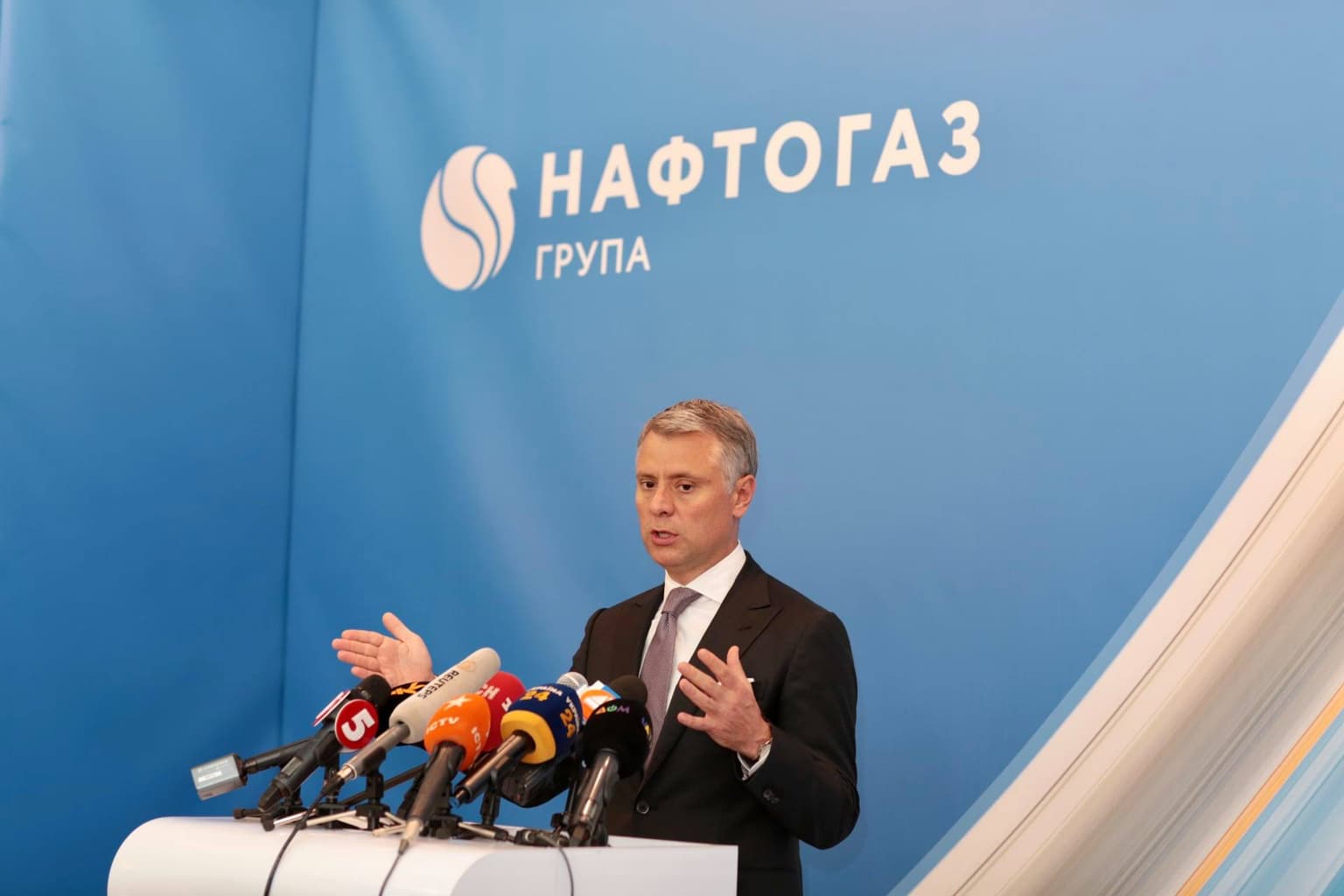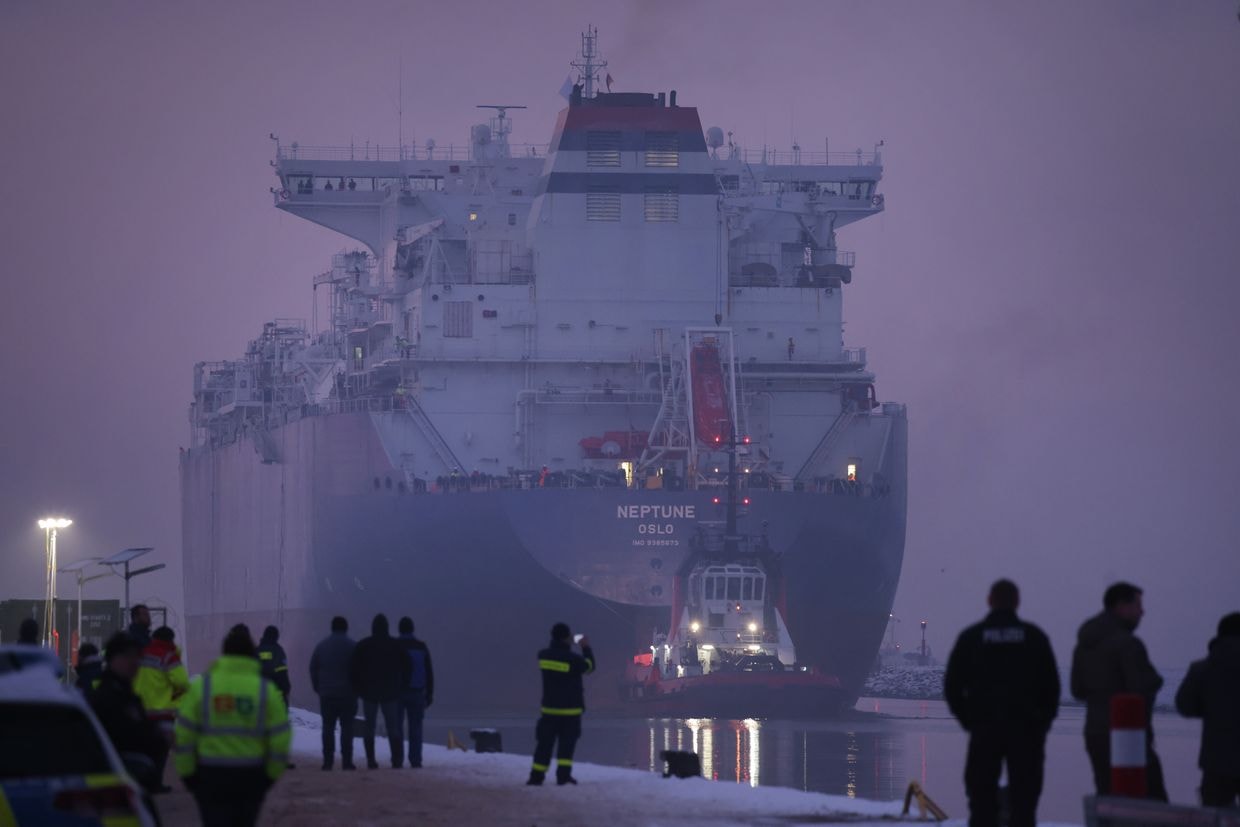Naftogaz complains of Gazprom market manipulation

Ukraine's state-owned gas company Naftogaz has appealed to the European Commission to take action against its Russian counterpart Gazprom’s alleged monopoly on the European gas market, highlighting the company’s manipulation of natural gas supply during the current European energy crisis.
In a press release published on the Naftogaz website on Dec. 22, Naftogaz announced that it had officially filed a complaint with the Directorate General for Competition in order to challenge Gazprom’s market monopoly.
Naftogaz CEO Yuriy Vitrenko stated that Gazprom had deliberately manipulated the market in order to shut out competitors.
“Gazprom has sharply reduced its own sales on the European spot market despite growing demand,” Vitrenko wrote.
According to Vitrenko, artificially raising the price of gas “limits the ability of other companies to supply additional gas to Europe and compete with Gazprom.”
Supplies of gas through Russia’s Yamal pipeline, which links the gas-rich Bovanenkovo gas field to central Europe, have reached record lows this year.
According to Reuters, gas flows halted altogether on Dec. 21 before switching to flow eastwards, driving gas prices up even further. Gas prices rose 16% to a new record high of $193.46 per megawatt hour.
Gas storage facilities in Europe are now running at 10-year lows. Naftogaz’s press statement complains that Gazprom has deliberately refused to fill its own storage facilities in the EU.
Naftogaz argued that Russia’s refusal to increase supply to Europe means that prices go up and gas brokers cannot afford to buy gas from smaller gas suppliers.
The Ukrainian company also noted that Gapzrom has stopped using its own electronic platform to sell gas, and has refused to include a gas transmission point for the Russian-Ukrainian border on the platform.
Naftogaz demanded that the directorate take “immediate measures to normalize the situation.”
“Gazprom’s actions are anti-competitive and have caused significant negative consequences for all European consumers,” Vitrenko stated.
Naftogaz wants the European Commission to force Gazprom to sell large volumes of gas through its electronic platform, which will be transported across the Russian-Ukrainian border and onwards to European consumers.
Gazprom could sell this gas to its European customers, or use Ukrainian underground gas storage facilities.
Currently, Russia is refusing to purchase any additional transit capacity Ukraine through Ukraine over the agreed minimum.
According to Serhiy Makogon, the head of Ukraine's Gas Transmission System Operator, the amount of gas Russia sends through Ukraine dropped to 57 million cubic meters per day in November. This is despite the fact that Russia pays for a transit capacity of 109 million cubic meters per day until the current "pump-or-pay" agreement runs out in 2024.
Makogon stated that there was “no commercial or technical justification” for this underutilisation of Ukraine’s gas infrastructure.
Experts believe that Russia is trying to create an artificial gas shortage in Europe in order to create an illusion of the need for the Nord Stream 2 pipeline, which would run under the Baltic Sea to Germany and transport up to 55 billion cubic meters of natural gas a year, bypassing Ukraine in the process.
Ukraine's loss of gas transit would deprive the country of up to $2 billion a year in revenue, as well as an important deterrent against Russian aggression.
Gazprom has previously stated that Nord Stream 2 would “cover additional demand” during the current energy crisis and bring and end to high prices.
Russia remains the dominant supplier of fossil fuels to the European Union. In 2019, the EU imported over 40% of its gas from Russia. Critics of Nord Stream 2 say that it would further increase the EU’s energy dependence on Russia.









